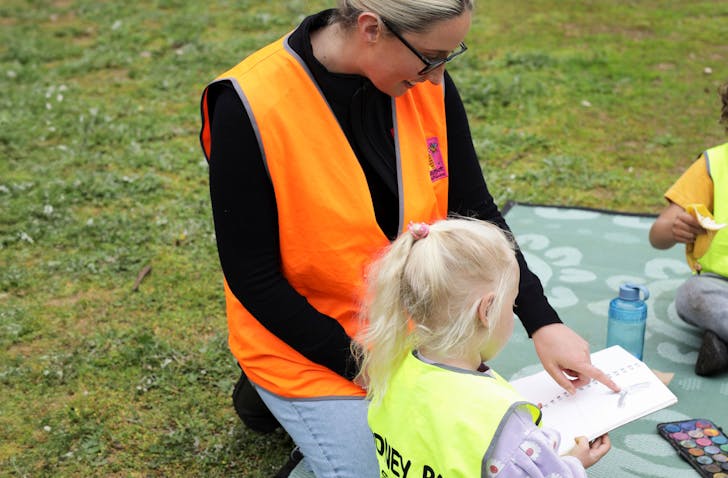How A Career In Early Childhood Education Can Change Lives, According To A Teacher
Are you interested in helping the next generation of children learn and develop? Then a career in early childhood education could be for you. We spoke to Brooke O’Brien, an early childhood teacher in Victoria, to get some insight on building your career in this field.
Brooke took advantage of the Victorian Government's early childhood scholarship program which she says allowed her to “start [her] career without worrying or having financial pressures” and to “get a head-start on other life goals.” She has now been working at The Honeypot Childhood Centre for eight rewarding years, so she knows a thing or two about having what it takes.
Can you tell us a bit about your early childhood placement experience during your studies?
Both of my placements went for eight weeks and were so valuable in getting me ready for a role as an early childhood teacher. I developed the skills to design a play-based environment, to structure our days in a way that supports all children to engage in the learning opportunities that we have designed, to provide support to children with additional needs, and to plan for and assess children's learning.
The best part about the placements was being able to practice and build my confidence with teaching children and communicating with families while getting valuable feedback from a mentor.
Over the course of your career, what is something you’ve learnt that you otherwise would’ve remained unaware of?
How to support children who have experienced trauma and ensure I provide a trauma-informed space. I have learnt more about brain development in the early years and how to support children to develop understanding of their emotions and ways to self-regulate.
What are the vital pieces of information you would share with someone interested in a similar career?
You should have a passion for working with children and a commitment to ongoing professional development. Be open-minded, flexible and be willing to make changes to ensure the program caters for all needs. You must be gentle and nurturing with children, remembering they are very young and our role as educators is to guide and support them.
Can you tell us a bit more about this Bush Kinder program you started?
After working in partnership with our Local Aboriginal community and Parks Victoria, we found a bush site located in Towerhill Nature Reserve which is an extinct volcano with rich Aboriginal history. Every second Tuesday, we head down to our Bush Kinder site for three hours where children are given a chance to explore nature alongside their peers. We firstly acknowledge the traditional owners of the lands which we are on and talk about the importance of caring for this land.
What sort of impact have you seen since the Bush Kinder program began?
We have seen the children's social skills such as communication, cooperation and problem-solving develop as they work together. One example of this is when they create houses out of sticks and rocks as a team.
The children are building relationships with local Aboriginal community members where they learn about their ways of living, their history and language which helps them develop a better understanding of the community in which they live.
We have also seen a positive impact on children’s behaviour at Bush Kinder as children are allowed to do what children are born to do: run, jump in puddles, climb trees, jump off rocks, be messy and share happiness and laughter with their peers.
Children who have experienced trauma or who have additional needs are thriving at Bush Kinder with nature providing many opportunities to stimulate their brains but also provide opportunities for calm.
The experience has allowed the children to enjoy thrills and exhilaration but also learn how to assess risk and make choices to keep themselves safe while out in the bush.
Can you tell us the most rewarding part of your job so far?
Building relationships with children is by far my favourite part, knowing that I have supported them in many ways to feel a sense of safety and belonging in a place other than home will help them to feel the same when they start school.
What kind of ‘soft skills’ do you think a person might need to be an early childhood teacher or educator?
You need to have excellent communication skills, patience and the ability to work well with children and families. The profession requires a lot of emotional intelligence, empathy and the ability to connect with children on their level. You should be creative, open-minded, flexible and able to adapt to change.
The Victorian Government has made kindergarten programs free for three- and four-year old children across the state. If you’re keen to be part of the most significant changes to early childhood education in a generation and learn more about the scholarship program, head here.
Editor’s note: this article was produced in partnership with Vic Gov. Thank you for supporting the partners who make Urban List possible. To read our editorial policy, click here.
Images: Supplied.
.jpg?format=auto,compress&w=728 728w)